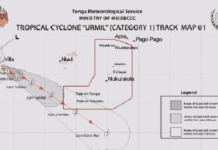The New Zealand Immigration and Protection tribunal has ordered that a Tongan man be allowed to remain in the country.
The Tribunal said there were exceptional circumstances of a humanitarian nature that would make it unduly harsh for him to be deported from New Zealand and that this would not contrary to the public interest.
The 36 years-old man became a New Zealand resident in March 2013.
The man and his family were granted residency in 2013
His liability stems from his conviction on November 27, 2018, for indecent assault on a man.
He served a period of home detention and has been unemployed ever since.
A number of family members have disowned him because of the shame they felt he had brought on them.
The appellant was deemed liable for deportation because he committed the offence within five years of receiving his residency visa.
The appellant said his family would suffer if he was deported. If the family all went to Tonga he would spend all his savings on the move and there would be nothing left to start a new life.
The Tribunal was told the wife was in poor health, spoke limited English and did not drive. She relied heavily on her husband for help with the children.
A statement in support of the appeal said the couple’s children, who were New Zealand citizens, would suffer if they had to return to Tonga because they were unlikely to be able to attend an English speaking school and would therefore be disadvantaged when they returned to New Zealand later in life.
The Tribunal ruled that there was a public interest in the preservation of family unity and in the observance of New Zealand’s international obligations in that regard.
There would be a profoundly adverse effect on the appellant’s wife and five young children if they remain in New Zealand after his deportation.
The man’s liability for deportation was therefore suspended for three years on condition that he not be convicted of any jailable offence during this time.







